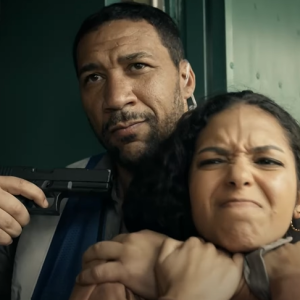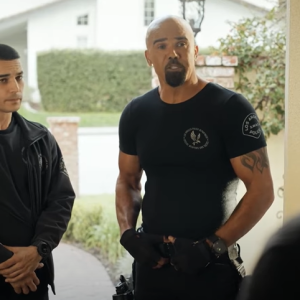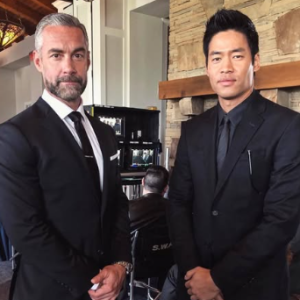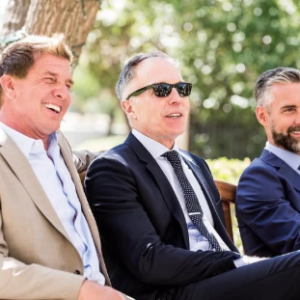The popular procedural drama S.W.A.T., known for its high-octoctane action and compelling character arcs, finds itself once again at a critical juncture as its eighth season concludes. Despite a dedicated fanbase and a history of remarkable resilience, the show’s future, particularly the possibility of a ninth season, remains shrouded in profound uncertainty. Executive producer and co-creator Shawn Ryan has offered a candid assessment, highlighting that the current situation differs significantly from previous close calls, painting a picture that is more precarious than ever before.
S.W.A.T. has developed an almost legendary reputation for its ability to defy cancellation. The series, which follows the adventures of Sergeant Daniel “Hondo” Harrelson and his elite Special Weapons and Tactics unit in Los Angeles, has captivated audiences with its blend of timely social commentary and thrilling action sequences. This strong connection with viewers, coupled with robust international appeal, has been instrumental in its survival. In May 2023, CBS abruptly canceled the show after its sixth season, a decision that sparked immediate outrage and a fervent fan campaign. Remarkably, within days, CBS reversed course, greenlighting a seventh season. This was followed by another unexpected reprieve in April 2024, when an eighth season was commissioned, solidifying S.W.A.T.’s status as one of CBS’s longest-running dramas. These miraculous comebacks instilled a sense of hope among fans that the show might always find a way to endure.
However, the latest development feels distinct, carrying a stronger undertone of finality. In March 2025, CBS officially canceled S.W.A.T. yet again, but this time, crucially, without any engagement in renewal talks. The absence of negotiations with Sony Pictures Television, the studio producing the series, marks a significant departure from past interactions. Previously, even amidst cancellation announcements, there were behind-the-scenes discussions, financial compromises, and strategic shifts that ultimately led to the show’s return. This current lack of dialogue suggests a harder line from the network, indicating that a CBS revival for a ninth season is increasingly unlikely.
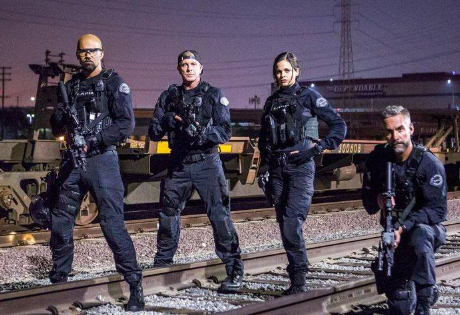
Shawn Ryan’s insights into the situation underscore the complexity behind the network’s decisions. In various interviews, Ryan has consistently affirmed that S.W.A.T. continues to be creatively strong, thanks to showrunner Andy Dettman’s leadership. Furthermore, the show enjoys considerable internal support, with CBS executives expressing genuine affection for the series and acknowledging its strong connection with its audience. Yet, this internal goodwill is now being overshadowed by formidable external pressures: looming corporate changes and a new economic reality reshaping the television landscape.
A major factor flagged by Ryan is the impending acquisition of Paramount Global, CBS’s parent company, by Skydance Media. Such large-scale corporate mergers invariably bring about a reassessment of assets, a shift in strategic priorities, and often, a stricter financial lens applied to all existing properties. New leadership frequently introduces different metrics for evaluating shows, which can significantly disadvantage productions not directly owned by the network’s parent company. S.W.A.T. falls into this category, as it is produced by Sony Pictures Television, an external studio. This distinction is critical because outside-studio shows typically involve substantial licensing fees paid by the network to the production company. In an environment where cost-cutting and a focus on fully owned intellectual property are paramount, shows like S.W.A.T. become more vulnerable. The lack of contract negotiations this time around strongly suggests that a fundamental disagreement on these licensing fees was a major sticking point, one that CBS was unwilling to compromise on further.
The economic realities are further compounded by S.W.A.T.’s recent viewership trends. Season 8 averaged approximately 4.9 million viewers, representing a decline of about 20% compared to Season 7. While still a respectable number for television today, this placed S.W.A.T. last among CBS’s 14 drama series. In an increasingly fragmented media landscape, where every viewer counts and advertising revenue is fiercely competitive, a show’s relative performance within its own network’s lineup becomes a significant determinant for renewal. Despite its loyal core audience, the declining numbers provided CBS with a clear justification for its decision, especially when paired with the rising costs of production and licensing.

Given this backdrop, Shawn Ryan’s focus has remained on artistic integrity and maintaining the show’s legacy. He affirmed that the production team continues to dedicate itself to creating high-quality episodes, irrespective of the uncertain future. Ryan concedes that the ball is now squarely in CBS’s court, acknowledging that the odds of renewal hinge entirely on complex economic factors, the evolving corporate landscape post-merger, and any potential breakthroughs in studio negotiations. The long-standing industry love for S.W.A.T. and its strong creative output, while valuable, simply do not guarantee a renewal in the face of these overriding business considerations.
However, the story of S.W.A.T. may not be entirely over, even if its run on CBS concludes. The resilience of its fanbase and the dedication of its cast and crew have opened alternative avenues for continuation. Lead actor Shemar Moore, who portrays Hondo, has been a vocal advocate for the show’s survival, publicly urging streaming platforms like Netflix to pick up the series. Moore’s appeal is bolstered by concrete viewership data; S.W.A.T. has consistently performed exceptionally well on streaming services, even topping Netflix’s rankings in viewership at various points. This strong performance on a global platform suggests a viable audience base that transcends traditional network television and could make the show an attractive acquisition for a streamer looking to bolster its content library with proven, popular titles.
Adding another layer to the S.W.A.T. universe, Sony Pictures Television is already moving forward with a 10-episode spin-off titled S.W.A.T. Exiles. This new series is set to feature Hondo training a new S.W.A.T. team, signaling Sony’s continued belief in the franchise’s potential. Crucially, S.W.A.T. Exiles is being developed independently of CBS, meaning its fate will lie with streaming platforms or international buyers. This spin-off could serve as a continuation of the beloved characters and world, offering fans a way to stay connected even if the flagship series ceases production. It also demonstrates Sony’s proactive approach to maintaining the intellectual property in the absence of a network deal for the main show.

In summary, the prospect of S.W.A.T. Season 9 on CBS appears increasingly slim. The significant 20% decline in ratings, coupled with the impending Skydance takeover introducing new evaluation rules, has undeniably impacted its standing. The unprecedented lack of renewal talks with Sony Pictures Television further underscores the network’s firm stance. While the show’s external production by Sony has historically complicated deals, fan outreach and Shemar Moore’s passionate appeals offer a glimmer of hope for a potential streaming rescue. Simultaneously, the development of the S.W.A.T. Exiles spin-off suggests a broader strategy to keep the universe alive. Despite the enduring executive love for the series and its strong legacy, the show’s future hinges on rapidly shifting corporate priorities and cold economic realities. Unless a dramatic change occurs behind the scenes—perhaps a last-minute deal with a streaming giant, or a surprising reversal of the network’s current position—the eighth season seems poised to be S.W.A.T.’s final curtain call on CBS, while the “Exiles” may pave a new path for the franchise.
